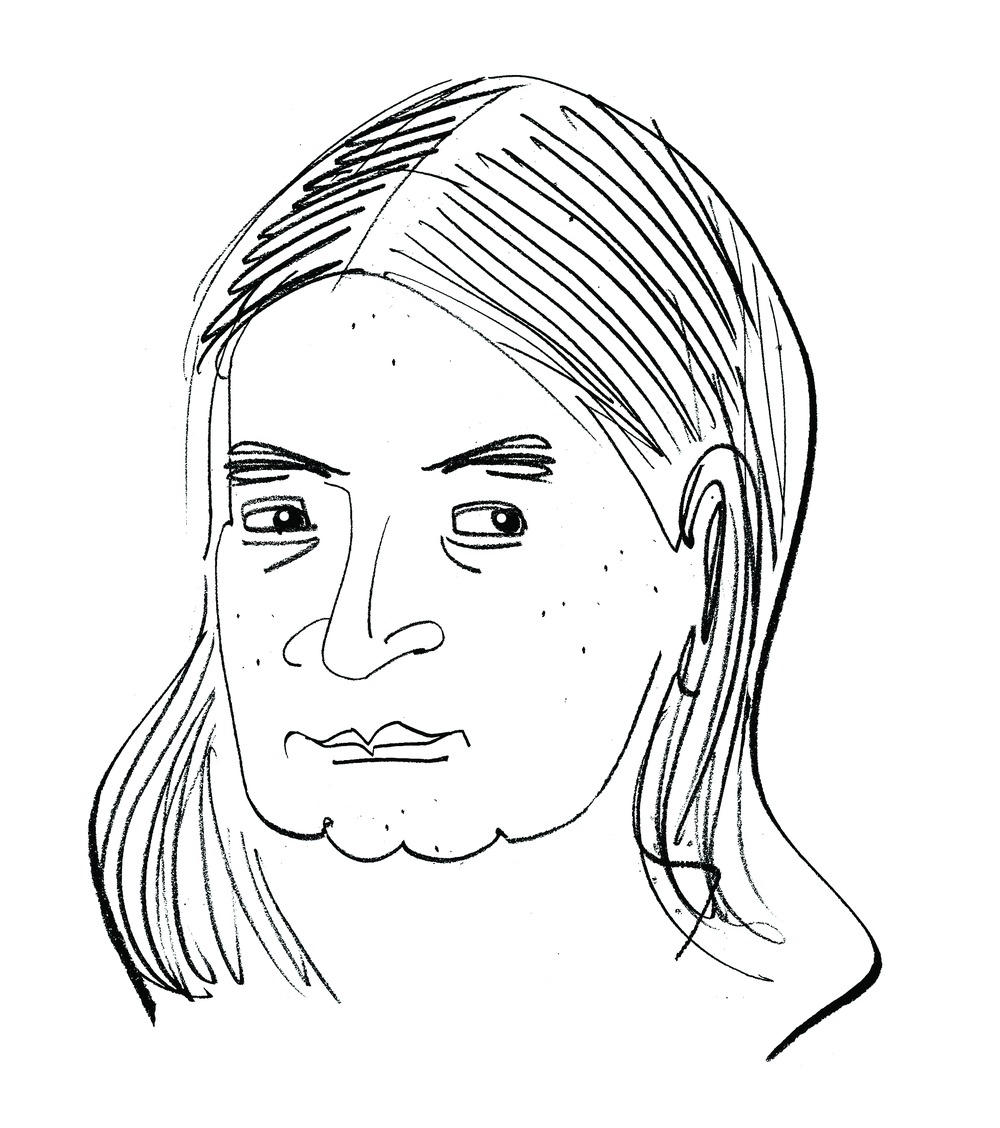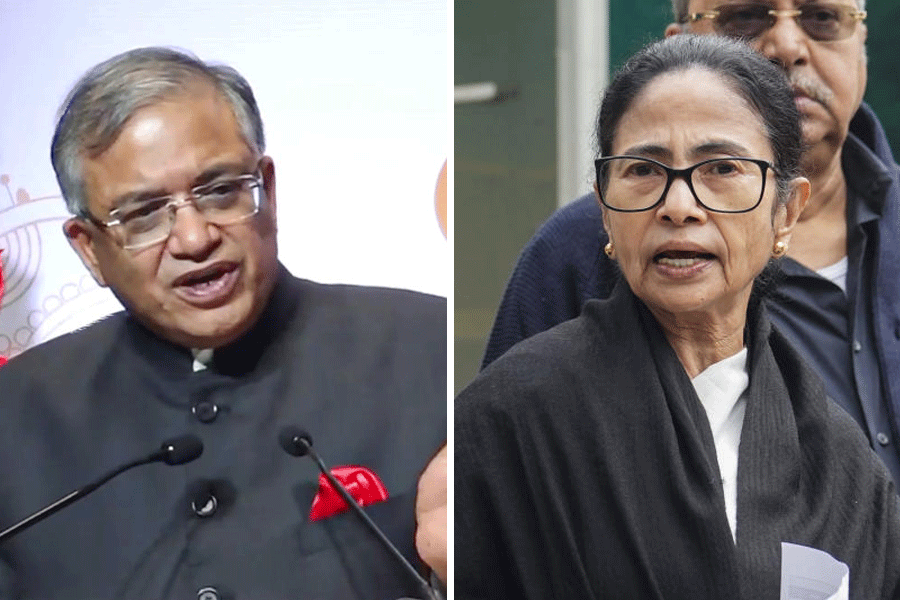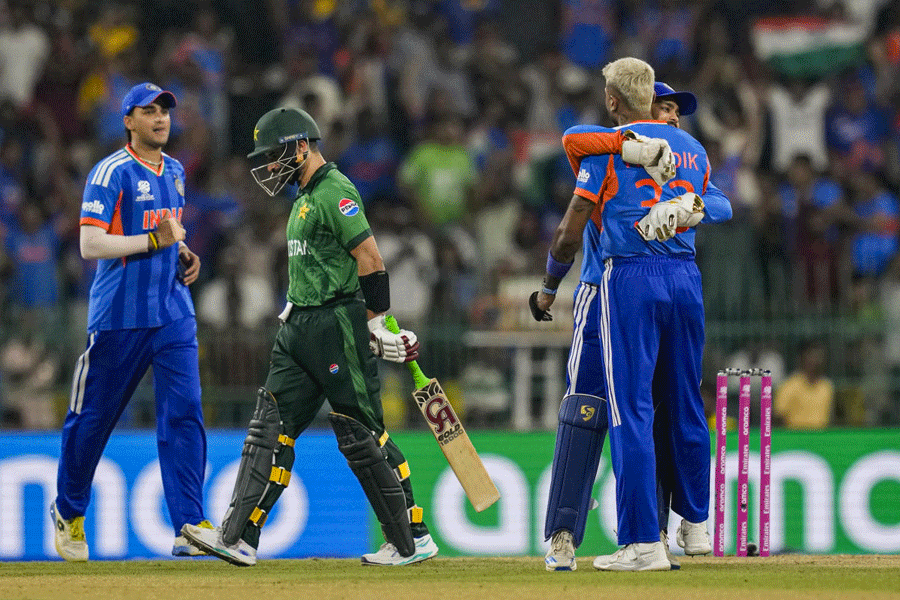
There’s a sense of serenity inside the vast room of the otherwise bustling government building. The stillness seems to be in sync with the composed figure sitting behind the desk. Even though Maneka Gandhi, the Union minister for women and child development, is actually in a tearing hurry.
She points to a large whiteboard tacked on the wall with two dozen plans that she jotted down when she joined the ministry in 2014 — tracking how they’ve moved ahead. On a smaller board next to it are 11 key ideas listed under “Achievements that will change India”.
Maneka wants these to be executed before she demits office. And she is peeved that the UPA government ignored the ministry, leading to the “bureaucratic inertia” that she believes has settled in.
“The biggest challenge we have is dealing with the bureaucracy. When I was a minister in Mr (Atal Bihari) Vajpayee’s Cabinet, everything used to be done quickly. It was a live and interactive environment. Then 10 years of Congress rule happened. Many ministers didn’t come to work or had a different agenda which had nothing to do with India. In that process, the system of governance completely broke down. Something that I suggest can take up to two years to get implemented. This is despite the fact that we are in a ferocious hurry for change.”
Maneka’s pet project for a while now has been the extension of maternity leave. “I follow this up with the labour ministry every single day,” she grumbles. (The new Maternity Benefit Bill, which seeks to increase maternity leave from the existing 12 weeks to 26, was passed by the Rajya Sabha on Thursday.)
She speaks in a soft voice. Every answer is given after a thoughtful pause. The minister clearly wants to stay away from controversy. But that’s easier said than done. A recent tweet by her triggered a mini-war on social media when she asked women who faced abuse on social media to email her. Within hours, her inbox was swamped with complaints. The hashtag “#IamtrolledHelp” was created and a cyber cell with a team of five people was set up in her ministry. But soon she was at the receiving end of Twitter trolls.
“Don’t go there, don’t go there,” she says, covering her face with her hands.
Many of those abusing her were supporters of her own Bharatiya Janata Party (BJP), which Maneka joined leaving the Janata Dal in 2004. A fake account in her name with anti-men tweets had to be ordered suspended.
“I am told men are unhappy with my idea,” she chuckles. “I had to stand up for women,” she adds tersely. “They don’t give out death threats. At least I like to believe so.”
Maneka stresses that she has no intentions of policing social media sites. “I can’t even attempt to control the medium. It is a free medium. I am not taking any stand against abuse because I think women also abuse a lot on Twitter. But when a conversation threatens a woman with death, rape or any other heinous crime then they cannot be absolved of the responsibility of threatening to commit a crime.
I want to make this a ministry of refuge where women come looking for hope and help.”
Women’s groups, however, haven’t always been happy with her. Some criticised her when she linked marital rape to factors such as education, poverty and social customs. She also drew flak for suggesting that sex determination during pregnancy be made compulsory and the gender of the child be registered. Then, if families tried to abort a girl child, the government could trace them and punish the guilty, she had argued.
In her earlier avatar as environment minister, Maneka was the messiah for animals. And even now you can’t take the animal activist out of her. She justifies the need for people to live in harmony with other species. “The quality of life is not in the size of the house you live in but the health of your environment. You cannot sacrifice it for anything,” she asserts.
Unsurprisingly, she was furious a couple of months ago about a decision by the environment ministry — then headed by Prakash Javadekar — allowing the culling of protected animals. Javadekar replied that the state-sanctioned killing of wild animals was done in accordance with the law and on the request of state governments. “I can’t push beyond a point because of the vertical walls that exist between the ministries,” she shrugs.
Maneka, who turns 60 later this month, is also unhappy with the attitude of the states. “The divide between the states and the Centre is very deep which is so strange because ultimately we are one country,” she says. She has taken to task several states over serving low quality meals in anganwadis that provide basic healthcare in villages.
“How come we have reached this stage of 40 per cent malnutrition,” she asks, raising her hands in disbelief. “The states don’t turn down my ideas but they just don’t follow them up. We can call meeting after meeting but things take ages to move forward.” She rests her forehead on her right palm in a gesture of helplessness.
Her face, however, lights up when she talks about her ministry’s achievements. The National Policy for Women will be out later this month and it shifts from women welfare to rights. Come January, every mobile phone in the country will be fitted with a panic button to be used by women in danger.
Her proposal to induct 33 per cent women in the police force has been implemented by all the Union Territories and many of the states. A special Mahila Police Volunteer who will report on crime against women will be posted in every village . Then there’s the streamlining of the child helpline cell and improving conditions in juvenile and widow homes.
It’s already half an hour into the interview and she has twice been reminded of her next meeting on the phone by her assistant. “Chal bachche mere, aur kitna (Come on, child, how much more),” she asks me. But the conversation can’t be over without a question or two about her son, Varun Gandhi. A few poll surveys have suggested that the BJP member of Parliament from Sultanpur in UP is a popular choice for leading the party’s campaign in Uttar Pradesh, which goes to the polls next year. The BJP leadership, however, has kept Varun, who had got into trouble for his anti-Muslim remarks at election rallies some years ago, on the sidelines.
Any question about her son’s position in the party is answered with tact. As Indira Gandhi’s younger daughter-in-law, she had never shied away from publicly declaring her ambitions about seeing her husband, the late Sanjay Gandhi, as India’s future prime minister. But the once brash model-turned-journalist-turned-politician has mellowed over the years and knows that diplomacy is the road to longevity in politics.
So she just smiles fondly when asked if Varun Gandhi ought to be given a bigger role in Uttar Pradesh by the BJP. “I am not going to talk about this at all. I don’t make the decisions about what happens in the BJP.”
I twist the question, hoping to elicit a suitable answer this time. Does she think he is being sidelined by the party? “I can’t even answer this,” she replies. But then the doting mother in her starts to list some of his achievements.
“He is an MP. He writes a lot. He delivers lectures in universities such as Oxford and several other international universities. I am proud of him. The point is Varun is doing the best he can. The party has to take a call on what they believe is best for the party,” she says.
But does he have the ability to be a good leader?
“I don’t know if he can be a good leader. I don’t know, bete,” she emphasises. “It is not about whether he is chosen or not chosen by the party. Each one of us is a leader of our own constituency. And it’s our job to make our constituency the best we can. That’s all I can do. I am the third most senior person in Parliament. There must be a reason to it. It must be because of my total commitment to my constituency,” says the MP from Pilibhit in UP, which has sent her to the Lok Sabha six times.
There is speculation about Varun Gandhi joining the Congress. “Oh, come on,” she laughs. “I think it is the Congress that spreads such rumours.” I point out that his newspaper columns deal with subjects such as foreign direct investment, Brexit, American politics — matters that are in no way related to the common man in India. Isn’t he sounding more like his cousin Rahul Gandhi now?
“Oh, please,” she rolls her eyes. “No way, just go away,” she says, and laughs out loud.
tetevitae
A model-turned-journalist-turned-politician, Maneka marries Sanjay Gandhi in the mid-1970s. Backs the Emergency as younger bahu of the Nehru-Gandhi household. Launches the now-defunct Surya magazine
1980: Loses husband Sanjay Gandhi in an air crash. Is thrown out of home by mother-in-law and then Prime Minister, Indira Gandhi. Floats Sanjay Vichar Manch which later becomes Rashtriya Sanjay Manch (RSM)
1984: Contests Lok Sabha polls from UP’s Amethi, is drubbed by brother-in-law Rajiv Gandhi
1988-89: Merges RSM with V.P. Singh’s Janata Dal, and becomes its general secretary; enters Lok Sabha from Pilibhit
1992: Sets up People for Animals, an animal rights organisation
1999: Lends support to the BJP as an independent MP, serves as environment minister under Vajpayee. Joins the BJP in 2004 towards the fag end of the Vajpayee government.
Has been Lok Sabha MP for seven terms, six times from Pilibhit and once from Aonla, both in UP. After the NDA’s victory in the 2014 elections, returns to government as minister for women and child development










